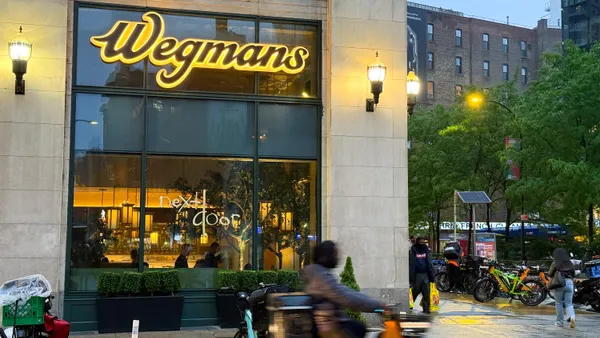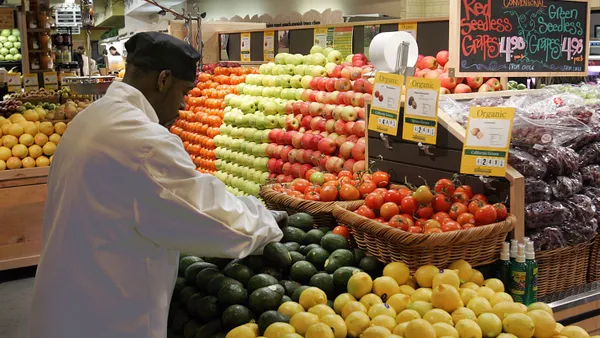Dive Brief:
- Ecoark Holdings, parent company of Zest Labs, filed a civil suit Wednesday against Walmart, claiming the retailer stole technology that extends the shelf life of produce. The complaint, filed in U.S. District Court in Arkansas, seeks $2 billion in damages.
- The company demonstrated its Zest Fresh cold-chain management technology to Walmart executives beginning in 2014 — and entered into a confidentiality agreement on March 5, 2014. The retailer eventually lost interest, but then earlier this year released a solution called Eden that Zest claims "looks, sounds, and functions" just like its technology. Walmart claimed it developed Eden through a six-month hackathon involving its own engineers.
- "In reality, Walmart used its years of unfettered access to plaintiffs' trade secrets, proprietary information, and know-how to steal the Zest Fresh technology and misappropriate it for Walmart's own benefit," the complaint reads. A Walmart spokesman told Food Dive it respects the rights of intellectual property holders and will respond appropriately.
Dive Insight:
Cutting down on produce waste is big business. According to Walmart, savings from this technology will amount to $2 billion over the next five years. In January 2017, it was deployed to 43 food distribution centers, and since then has saved the retailer $86 million.
In a blog post from March, Parvez Musani, Walmart's VP of supply chain technology, described the winning solution from their produce freshness hackathon this way:
"They gathered the many chapters of food product specifications set by the USDA, layered on Walmart’s own rigorous product standards, and combined all of this information with more than a million photos to create a freshness algorithm that prioritizes the flow of perishable goods worldwide." Musani wrote Walmart was the “very first retailer to digitize the entire (inspection) process.”
In his own blog post about the lawsuit, Zest Labs CEO Peter Mehring said the company was "surprised and concerned" at how similar Walmart's new solution seemed to Zest's, prompting the company to take legal action.
Zest Labs claims its proprietary information is at the heart of Walmart's Eden.
"Instead of licensing the Zest Fresh technology given Walmart's manifest need for it — and the mounting pressure it faces from Amazon and other competitors — Walmart misappropriated it without paying for it," the complaint, which is filed with redactions to protect proprietary information, reads. "Plaintiffs file this lawsuit to protect their trade secrets and recover the billions of dollars that Walmart will save as a result of its unlawful conduct."
The lawsuit was just filed on Wednesday, so Walmart has yet to formally respond. In statement emailed to Food Dive Wednesday afternoon, Walmart spokesperson Randy Hargrove wrote, “Walmart is an intellectual property owner and respects the intellectual property rights of others. We take this issue seriously and once we are served with the complaint, we will respond appropriately with the court.”
Startups and retailers alike are chasing a solution to the food waste problem, trying everything from "ugly" produce to smaller produce cases. Zest Labs says about a third of the nation's post-harvest fresh food is wasted.
According to ReFed, the United States wastes about 63 million tons of food each year, with 40% of that in grocery stores and restaurants. ReFed estimates that reducing fruit and vegetable waste would represent an $18.2 billion opportunity for retailers.
Zest Labs has been working with several grocery companies on the food waste problems. Hy-Vee has been testing Zest Labs’ technology since December 2017, while Costco announced a partnership with Zest Labs just last week.
The $2 billion in damages demanded by the lawsuit may look opportunistic, but the number is Walmart's own estimate at savings on food waste — and could presumably be part of the income Zest Labs would have received through licensing their technology to Walmart. It's also not so significant in the context of Walmart, which reported $122.7 billion in revenue in its most recent quarterly earnings report.









